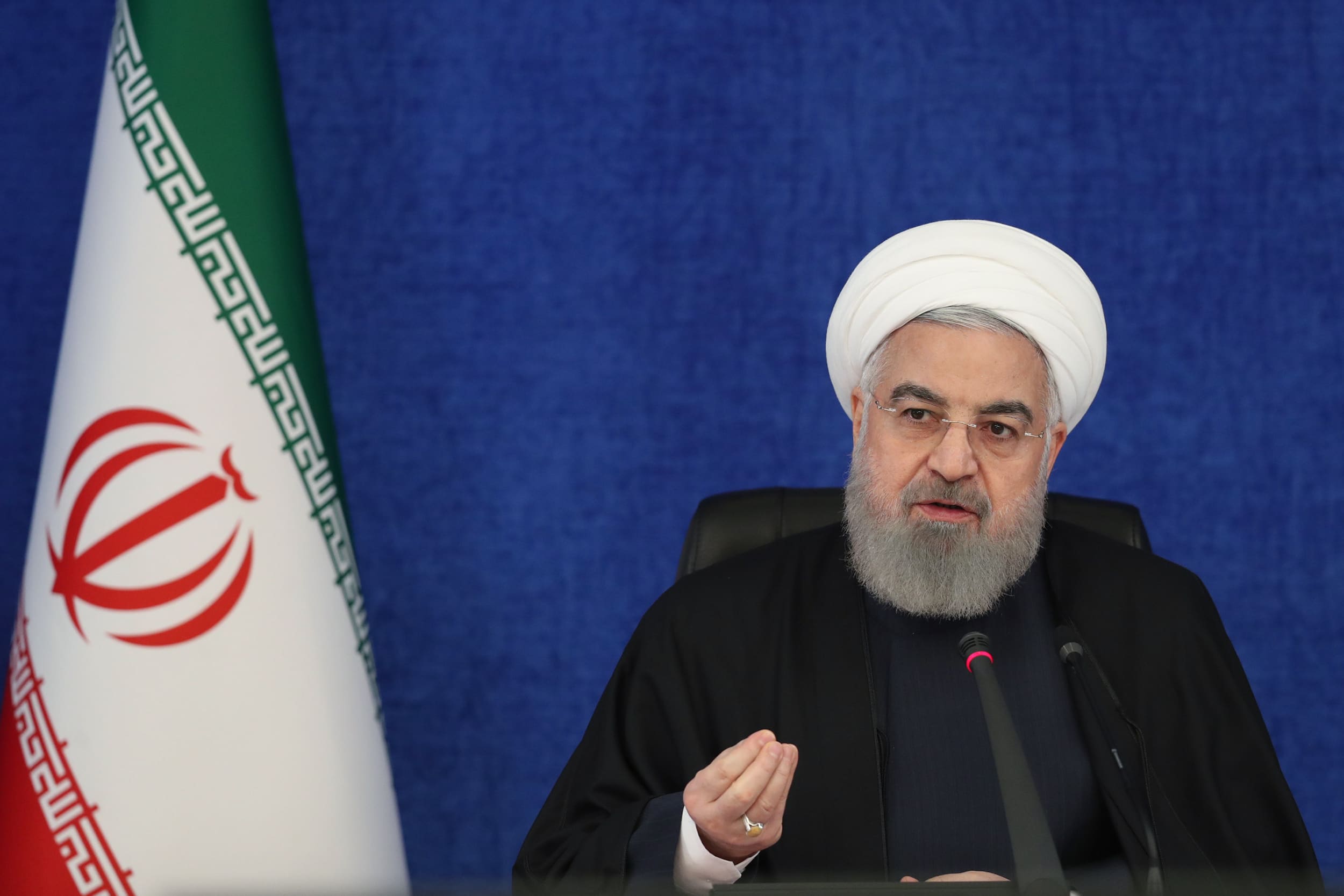Iran welcomes ‘new chapter’ in nuclear talks as Washington seeks to heal ‘profound differences’ in Vienna

President of Iran, Hassan Rouhani speaks during the National Combat Board Meeting with Coronavirus (Covid-19) in Tehran, Iran on Nov. 21, 2020.
Iranian Presidency Handout | Anadolu Agency | Getty Images
The United States and Iran will resume talks on Friday aimed at restoring trust and bridging what Washington calls “tremendous and profound differences” over how to salvage their failed nuclear agreement.
Iranian President Hassan Rouhani told a cabinet meeting in Tehran on Wednesday that initial talks with the U.S. and world powers in Vienna to rescue the deal were a “success” that opened a “new chapter” to save the agreement, according to a statement via his official website.
Both countries described the indirect talks on Tuesday as a “useful step” and “constructive” despite neither representative actually meeting face-to-face. Officials chose instead to use European signatories to the deal to act as intermediaries.
“We are not optimistic or pessimistic about the outcome of this meeting now, but we are confident that we are on the right track,” said Ali Rabiei, an Iranian government spokesperson. “Surely the full implementation of this agreement will be finalized within the coming weeks,” he added.
Tehran is taking an “all or nothing” approach to the talks. It wants Washington to guarantee the full removal of Trump era sanctions in order to scale back its enrichment activity. The Iranian side is also pressured by time, with Presidential elections set to fall in June this year that will remove President Rouhani and Foreign Minister Javad Zarif from office.
Washington, however, is seeking a “compliance for compliance” approach, with President Joe Biden ruling out any “unilateral gestures” but still open to exploring how the U.S. might also resume its own compliance with the deal.
An early economic olive branch appears to have already failed, with Iran describing a proposal from the U.S. to release $1 billion of frozen oil money in exchange for Iran capping its uranium enrichment program as “ridiculous.”
“The first issue that these talks are going to have to resolve is the basic disconnect in approach,” Kirsten Fontenrose at the Scowcroft Middle East Security Initiative told CNBC’s Hadley Gamble on Wednesday.
“Until you square that circle, you can’t get anywhere,” she said.
With talks in Vienna scheduled to resume on Friday, two working groups were established to set the framework for negotiation. The first group is focused on the issue of American sanctions, which were imposed by the Trump administration after it left the original deal in 2018.
The second group is exploring how to bring Iran back into compliance with the limits set by the original JCPOA on enrichment and stockpiles of enriched uranium. Iran has repeatedly violated the terms of the agreement, causing concern among European and world signatories and stoking tensions among its neighbors in the Middle East.
Friday’s talks could set the stage for more constructive talks, or a full blown showdown. In the past, Iran has used the first week of April to celebrate its “Day of Nuclear Technology”, which showcases the country’s nuclear achievements. The event was delayed last year due to the coronavirus outbreak.
“This day is an opportunity for people to see that in these years, despite the economic pressures, what great advances and achievements have been made in the field of the country’s nuclear technologies,” President Rouhani said.
Oil impact
Oil prices recovered slightly as initial talks concluded. A breakthrough could be bearish for crude oil, analysts say, if it raises the prospect of large quantities of Iran oil exports returning to the market.
“If I was sitting at an oil trading desk, I would probably think I’m in a pretty safe space, because it looks like this is going to continue on as it has,” Fontenrose said.
“We won’t have much disruption because we’re not coming close to getting Iranian oil back on the market, and we’re not seeing any big steps by Iran or the Gulf that would be destabilizing to the energy flow,” she added.




